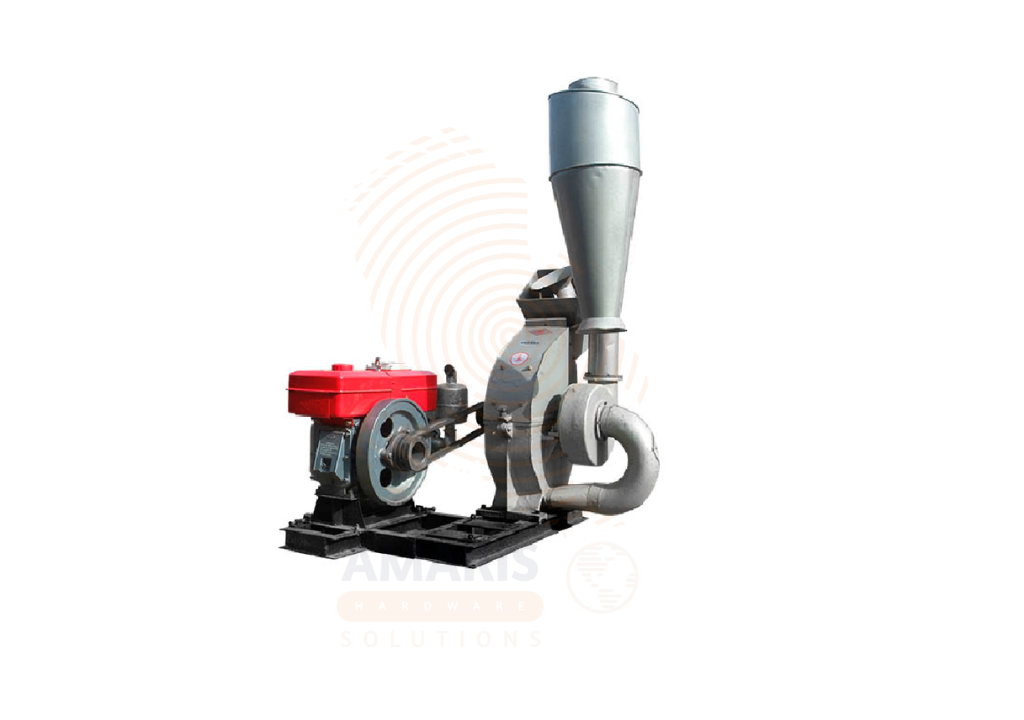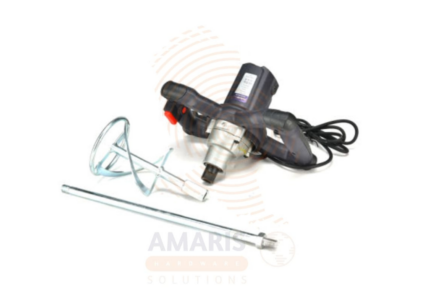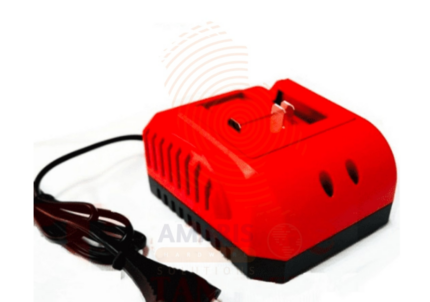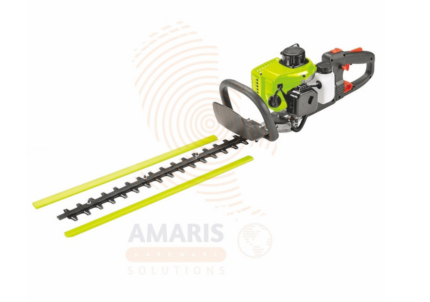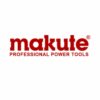
Hammer Drill
$64.62 Original price was: $64.62.$61.39Current price is: $61.39.

Hand Rotary Barrel Pump
$47.31 Original price was: $47.31.$44.95Current price is: $44.95.
Hammer Mill
$357.69 Original price was: $357.69.$339.81Current price is: $339.81.
WhatsApp Order
A Hammer Mill is an industrial grinding machine used to crush, pulverize, shred, and reduce the size of various materials such as grains, biomass, minerals, and agricultural products. It operates by rotating hammers attached to a spinning rotor that strike the material, breaking it down into smaller pieces which pass through a screen for size control. Hammer Mills are widely used in feed production, biomass processing, recycling, and mineral processing due to their efficiency and versatility. They come in various sizes and configurations, suitable for fine to coarse grinding and are essential in agriculture, manufacturing, and energy industries.
Description
Table of Contents
ToggleHammer Mill
Uses
-
Feed Milling
o Grinds grains and other feedstock materials for livestock feed production.
o Facilitates the mixing of feed by reducing particle size. -
Agricultural Processing
o Processes crop residues like straw, stalks, and husks for animal bedding or biofuel.
o Prepares raw materials for pelletizing or composting. -
Biomass Grinding
o Pulverizes wood chips, sawdust, and other biomass into fine particles for energy production.
o Supports bioenergy and renewable fuel manufacturing. -
Recycling and Waste Management
o Reduces the size of waste materials like plastics, paper, and organic waste for easier handling or recycling.
o Helps in volume reduction and material separation. -
Mineral Processing
o Crushes minerals and ores for further refining or extraction processes.
o Prepares samples for laboratory analysis. -
Pharmaceutical and Chemical Industries
o Grinds raw materials into powders for tablet production or chemical processing.
o Ensures uniform particle size for consistent product quality. -
Food Industry
o Pulverizes spices, grains, and other food ingredients to desired textures.
o Used in flour milling and production of textured food products. -
Construction Material Preparation
o Processes limestone, gypsum, and other raw materials for cement or plaster production.
o Facilitates material blending and homogeneity.
SAFETY HANDLING PRECAUTIONS
Safety Precautions
-
Wear Proper Personal Protective Equipment (PPE)
o Use safety goggles or face shields to protect against flying particles.
o Wear ear protection due to high noise levels during operation.
o Use gloves and dust masks to prevent respiratory irritation and hand injuries. -
Machine Inspection
o Check hammers, screens, and rotor for wear or damage before use.
o Ensure all guards and covers are securely in place. -
Safe Operation Practices
o Do not overload the mill beyond its capacity.
o Keep hands and loose clothing away from moving parts.
o Use locking mechanisms during maintenance to prevent accidental startup. -
Maintain Clean Work Area
o Keep the surrounding area free of dust accumulation and combustible materials.
o Ensure proper ventilation to reduce dust hazards. -
Lockout/Tagout Procedures
o Always disconnect power and follow lockout/tagout protocols before servicing or cleaning. -
Emergency Preparedness
o Know the location of emergency stop buttons and fire extinguishers.
o Train operators on emergency shutdown and first aid procedures. -
Training and Supervision
o Only trained personnel should operate or maintain the hammer mill.
o Follow manufacturer’s guidelines and maintenance schedules strictly. -
Handling Material Safely
o Feed material should be free of foreign objects such as metal or stones to prevent damage.
o Use appropriate feeding equipment to avoid manual contact with the mill. -
Noise and Vibration Control
o Limit exposure time and use hearing protection to prevent hearing loss.
o Secure the machine on a stable surface to reduce vibration hazards.
Related products
Big Battery Pro
A " Big Battery Pro" typically refers to a rechargeable lithium-ion battery with a nominal voltage of 20 volts. The nominal voltage represents the average voltage output over the majority of the battery's discharge cycle. It's important to note that the actual voltage during use may fluctuate within a specified range.
These batteries are commonly used to power various devices, including power tools, garden equipment, and other portable electronic devices. The "20V" designation is a standardized measure indicating the electrical potential of the battery, providing a general indication of its power output.
Keep in mind that when considering a 20V battery, it's essential to verify compatibility with the specific device or tool it is intended for. Additionally, different manufacturers may have variations in the actual voltage, capacity, and features of their 20V battery products. Checking the product documentation or contacting the manufacturer for detailed specifications is recommended for accurate information.
Cement And Paint Mixer
A cement and paint mixer is a mechanical device designed to efficiently and homogeneously blend cement or paint constituents to achieve a uniform and consistent mixture. Typically utilized in construction and painting applications, these mixers come in various designs, including portable or stationary models. They feature rotating blades, paddles, or agitators that facilitate the thorough mixing of dry or liquid materials, ensuring the creation of a well-mixed and homogeneous product suitable for construction or painting purposes.
Cement Blender
A cement blender is a mechanical device designed for the purpose of mixing and blending various components of cementitious materials, such as cement, sand, and water, to create a homogenous mixture. This blended mixture is commonly used in construction and building projects, particularly for applications like concrete production. The blender typically features a rotating drum or container that facilitates the thorough mixing of the ingredients, ensuring a consistent and uniform composition for the construction materials.
Circular Saw Blade for Aluminum
A circular saw blade for aluminum is a cutting tool specifically designed for use with a circular saw to cut through aluminum materials. It features specialized teeth and design elements to optimize the cutting process for aluminum, which has different characteristics compared to wood or other materials. These blades typically have a high tooth count, often with specially shaped teeth, and may incorporate coatings or materials that reduce heat buildup during cutting. The goal is to provide efficient and clean cuts through aluminum while minimizing the risk of overheating or material deformation.
Circular Saw Blade for Wood
A circular saw blade for wood is a cutting tool designed specifically for use with a circular saw. It typically consists of a flat, circular disc with sharp teeth along its outer edge. The blade is mounted onto the arbor of the circular saw, and as the saw operates, the blade spins rapidly to cut through wood materials. Circular saw blades for wood are specifically engineered to make efficient and clean cuts in wood, and they come in various sizes and tooth configurations to suit different cutting tasks and wood types. The teeth on the blade are strategically shaped and arranged to ensure smooth and precise cutting while minimizing splintering and tear-out on the wood surface.
Countersink Drill Set
A countersink drill set typically refers to a collection of six tools designed for countersinking operations in woodworking or metalworking. Each set usually includes six individual countersink drills with varying sizes or angles. Countersinking is a process that involves creating a conical hole in a material, allowing the head of a screw or bolt to sit flush with or below the surface. These drill sets are essential for achieving a professional finish in various applications where a smooth and even surface is desired, such as in carpentry, metal fabrication, or DIY projects.
Fast Charger
A fast charger is a device designed to quickly recharge compatible batteries with a voltage rating of 20 volts. The "fast" designation implies that the charger is engineered to deliver a higher charging current, allowing for a more rapid replenishment of the battery's energy capacity compared to standard chargers. This type of charger is commonly used for power tools, electronic devices, or other equipment that operates on 20V batteries, providing users with a more efficient and time-saving charging solution.
Gasoline Hedge Trimmer
A gasoline hedge trimmer is a handheld gardening tool powered by a gasoline engine, designed for trimming and shaping hedges, bushes, and shrubs. It consists of a cutting blade or blades, typically reciprocating, attached to a long shaft with a handle or grip for ease of use. The gasoline engine provides the necessary power to drive the blades, offering mobility and independence from electrical outlets, making it suitable for use in outdoor settings where access to electricity may be limited. Gasoline hedge trimmers are valued for their versatility, allowing users to manicure and maintain landscaping with efficiency and precision.


 Acrylic Sealants
Acrylic Sealants Construction Adhesives
Construction Adhesives Double-Sided Tape
Double-Sided Tape Duct Tape
Duct Tape Electrical Tape
Electrical Tape Epoxy & Resins
Epoxy & Resins Masking Tape
Masking Tape
 Automotive Wrenches & Socket Sets
Automotive Wrenches & Socket Sets Battery Chargers & Jump Starters
Battery Chargers & Jump Starters Car Jacks & Stands
Car Jacks & Stands Car Wash & Detailing Products
Car Wash & Detailing Products Diagnostic Tools
Diagnostic Tools Tire Inflators
Tire Inflators Vehicle Lighting
Vehicle Lighting Oil & Lubricants
Oil & Lubricants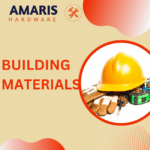
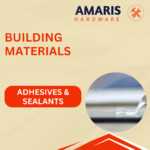 Adhesives & Sealants
Adhesives & Sealants Bricks & Blocks
Bricks & Blocks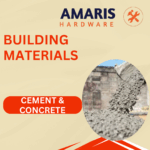 Cement & Concrete
Cement & Concrete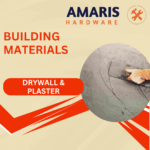 Drywall & Plaster
Drywall & Plaster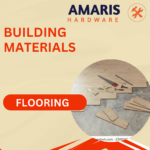 Flooring (Tiles, Wood, Laminate)
Flooring (Tiles, Wood, Laminate)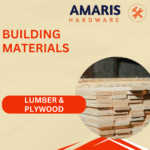 Lumber & Plywood
Lumber & Plywood Paints, Primers & Coatings
Paints, Primers & Coatings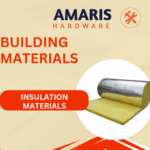 Insulation Materials
Insulation Materials Roofing Materials
Roofing Materials
 Circuit Breakers
Circuit Breakers Electrical Cables & Wires
Electrical Cables & Wires Switches & Sockets
Switches & Sockets Fuses & Relays
Fuses & Relays Connectors & Terminals
Connectors & Terminals Electrical Boxes & Panels
Electrical Boxes & Panels Conduit & Fittings
Conduit & Fittings Lighting Fixtures & Bulbs
Lighting Fixtures & Bulbs Extension Cords & Power Strips
Extension Cords & Power Strips
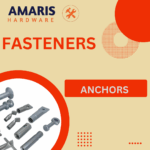 Anchors
Anchors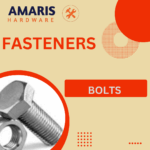 Bolts
Bolts Clips & Clamps
Clips & Clamps Screws
Screws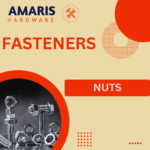 Nuts
Nuts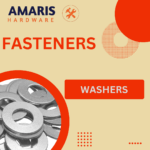 Washers
Washers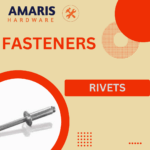 Rivets
Rivets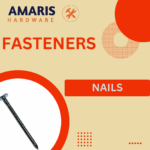 Nails
Nails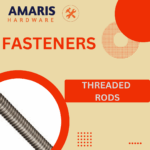 Threaded Rods
Threaded Rods
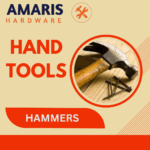 Hammers
Hammers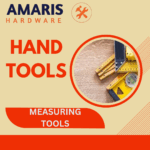 Measuring Tools (Tapes, Levels, Calipers)
Measuring Tools (Tapes, Levels, Calipers) Screwdrivers
Screwdrivers Pliers & Cutters
Pliers & Cutters Saws & Blades
Saws & Blades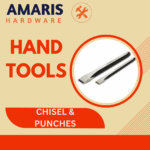 Chisels & Punches
Chisels & Punches Allen Keys & Hex Keys
Allen Keys & Hex Keys Ratchets & Socket Sets
Ratchets & Socket Sets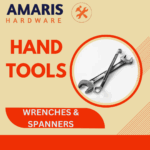 Wrenches & Spanners
Wrenches & Spanners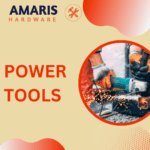
 Power Tool Accessories (Blades, Bits, Discs)
Power Tool Accessories (Blades, Bits, Discs)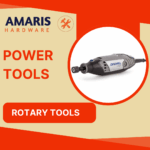 Rotary Tools
Rotary Tools Saws (Circular, Jigsaw, Reciprocating)
Saws (Circular, Jigsaw, Reciprocating) Drills & Drivers
Drills & Drivers Grinders & Sanders
Grinders & Sanders Heat Guns
Heat Guns Nail Guns
Nail Guns Impact Wrenches
Impact Wrenches Batteries & Chargers
Batteries & Chargers
 Pipes & Fittings (PVC, Copper, PEX)
Pipes & Fittings (PVC, Copper, PEX) Plumbing Tools
Plumbing Tools Pumps & Motors
Pumps & Motors Sealants & Adhesives for Plumbing
Sealants & Adhesives for Plumbing Valves & Taps
Valves & Taps Water Heaters
Water Heaters Drainage Systems
Drainage Systems Faucets & Fixtures
Faucets & Fixtures Hoses & Tubing
Hoses & Tubing
 Hinges & Latches
Hinges & Latches Hooks & Brackets
Hooks & Brackets Window Hardware
Window Hardware Chains & Cables
Chains & Cables Casters & Wheels
Casters & Wheels Shelving & Storage Systems
Shelving & Storage Systems Door Handles & Locks
Door Handles & Locks Drawer Slides & Cabinet Hardware
Drawer Slides & Cabinet Hardware
 Personal Protective Equipment (PPE)
Personal Protective Equipment (PPE) Respirators & Masks
Respirators & Masks Safety Glasses
Safety Glasses Safes
Safes Security Cameras
Security Cameras Gloves
Gloves Helmets
Helmets Ear Protection
Ear Protection Fire Safety Equipment
Fire Safety Equipment Locks & Padlocks
Locks & Padlocks Motion Sensors & Alarms
Motion Sensors & Alarms
 Garden Fencing
Garden Fencing Garden Furniture Hardware
Garden Furniture Hardware Lawn Mowers
Lawn Mowers Trimmers & Edgers
Trimmers & Edgers Shovels & Spades
Shovels & Spades Rakes & Hoes
Rakes & Hoes Pruning Shears & Loppers
Pruning Shears & Loppers Watering Systems (Hoses, Sprinklers, Nozzles)
Watering Systems (Hoses, Sprinklers, Nozzles)
 Interior Paints
Interior Paints Paint Brushes & Rollers
Paint Brushes & Rollers Paint Strippers & Thinners
Paint Strippers & Thinners Paint Trays & Accessories
Paint Trays & Accessories Exterior Paints
Exterior Paints Spray Paints
Spray Paints Primers & Undercoats
Primers & Undercoats Varnishes & Stains
Varnishes & Stains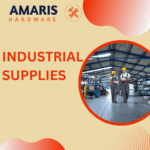
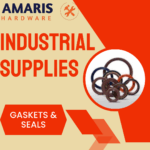 Gaskets & Seals
Gaskets & Seals Hydraulic Fittings
Hydraulic Fittings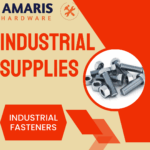 Industrial Fasteners
Industrial Fasteners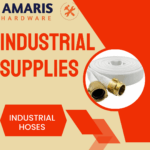 Industrial Hoses
Industrial Hoses Lubricants & Greases
Lubricants & Greases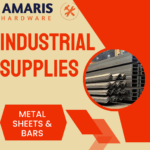 Metal Sheets & Bars
Metal Sheets & Bars Bearings & Bushings
Bearings & Bushings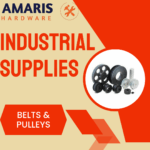 Belts & Pulleys
Belts & Pulleys
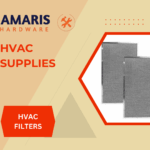 HVAC Filters
HVAC Filters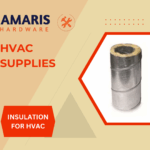 Insulation for HVAC
Insulation for HVAC Air Conditioners
Air Conditioners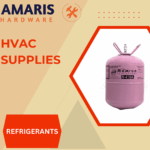 Refrigerants
Refrigerants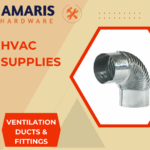 Ventilation Ducts & Fittings
Ventilation Ducts & Fittings Thermostats & Controllers
Thermostats & Controllers Fans & Blowers
Fans & Blowers
 Pegboards & Hooks
Pegboards & Hooks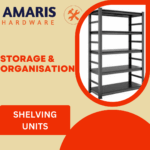 Shelving Units
Shelving Units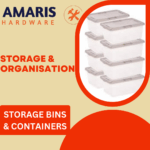 Storage Bins & Containers
Storage Bins & Containers Toolboxes & Tool Chests
Toolboxes & Tool Chests Workbenches
Workbenches Drawer Organizers
Drawer Organizers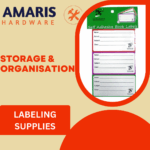 Labeling Supplies
Labeling Supplies
 Welding Accessories (Clamps, Brushes)
Welding Accessories (Clamps, Brushes) Welding Electrodes & Rods
Welding Electrodes & Rods Welding Helmets & Gloves
Welding Helmets & Gloves Welding Machines
Welding Machines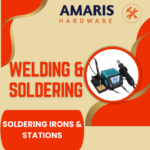 Soldering Irons & Stations
Soldering Irons & Stations Flux & Solder Wire
Flux & Solder Wire
 Generator Accessories
Generator Accessories Inverters
Inverters Portable Generators
Portable Generators Power Inverters
Power Inverters Transfer Switches
Transfer Switches Diesel & Gasoline Generators
Diesel & Gasoline Generators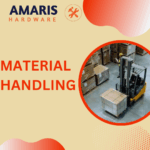
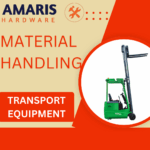 Transport Equipment: Carts, Dollies, and Hand Trucks
Transport Equipment: Carts, Dollies, and Hand Trucks Storage Solutions: Pallets, Racks, and Containers
Storage Solutions: Pallets, Racks, and Containers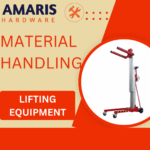 Lifting Equipment: Hoists, Cranes, and Jacks
Lifting Equipment: Hoists, Cranes, and Jacks Conveyors & Accessories: Belts & Rollers
Conveyors & Accessories: Belts & Rollers
 Office Chairs
Office Chairs